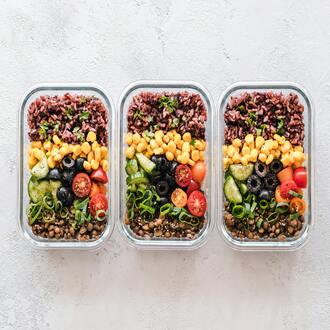Transcription Protein and the ketogenic diet
The ketogenic diet is a nutritional approach that has gained popularity due to its potential benefits for weight loss, improved metabolic health and cognitive development. Although the ketogenic diet is characterized by its emphasis on healthy fats and reduced carbohydrates, protein also plays a crucial role in this eating plan.
In this session, we will explore the importance of protein in the ketogenic diet, how to choose appropriate sources, and how to optimize protein intake for optimal results.
The role of protein in the body
Proteins are fundamental to the functioning of the human body. They are the building blocks of tissues, including muscles, skin, hair and nails. In addition, proteins play a vital role in immune function, enzyme and hormone production, and nutrient transport in the body. In a ketogenic diet, protein is essential for maintaining muscle mass and facilitating protein synthesis for cell growth and repair.
Adequate amount of protein in the ketogenic diet
Although protein is essential, on the ketogenic diet, the amount of protein consumed should be moderate. Too much protein can lead to gluconeogenesis, a process by which the body converts protein to glucose, which can interfere with ketosis and reduce the benefits of this diet. The recommended amount of protein in the ketogenic diet generally ranges from 20% to 25% of total daily calories.
When choosing protein sources on the ketogenic diet, it is important to opt for options that are low in carbohydrates and healthy. Lean meats such as chicken, turkey, fish and eggs are excellent choices to ensure adequate protein intake without exceeding carbohydrate limits. Dairy products such as Greek yogurt and cheese can also be included, as long as they are low in carbohydrates. In addition, plant proteins such as nuts, seeds and tofu are also suitable choices for those following a plant-based ketogenic diet.
Amino acid balance in the ketogenic diet
Amino acids are the building blocks of proteins and there are nine essential amino acids that the body cannot produce and must be obtained through the diet. It is important to ensure a balance of amino acids in the ketogenic diet to support optimal cellular function and protein synthesis.
By incorporating a variety of protein sources, such as meats, fish, eggs and vegetables, an adequate supply of all essential amino acids can be ensured.
Protein and satiety in the ketogenic diet
Proteins are known for their ability to generate satiety and reduce hunger. In the ketogenic diet, where carbohydrate intake is significantly reduced, protein can play a key role in food satisfaction and appetite control. By incorporating sufficient protein into meals, you can help avoid cravings and maintain satiety for longer, which is essential for long-term success on the ketogenic diet.
Effects of too much protein on the ketogenic diet
Although protein is essential, excess protein on the ketogenic diet can have unintended consequences. As mentioned above, excess protein can lead to gluconeogenesis and decrease ketone production, which affects ketosis. In addition, a high protein intake can place an additional burden on the kidneys, especially in individuals with pre-existing kidney conditions. It is critical to maintain a proper balance and follow protein recommendations to obtain the benefits without negative effects.
In addition to quantity, the quality of protein in the ketogenic diet is crucial. Opting for high-quality proteins, such as those found in organic and pastured animal sources, can provide a more complete nutritional profile. High-quality proteins contain a greater amount of essential amino acids and beneficial nutrients, which contributes to better overall health and well-being.
In certain cases, protein supplementation may be necessary in the ketogenic diet, especially for those who engage in intense physical activity or have special protein requirements. Whey-based protein powders, collagen or vegetable proteins may be suitable options to supplement daily protein intake. However, it is essential to remember that most protein needs should be met through natural food sources.
proteins




